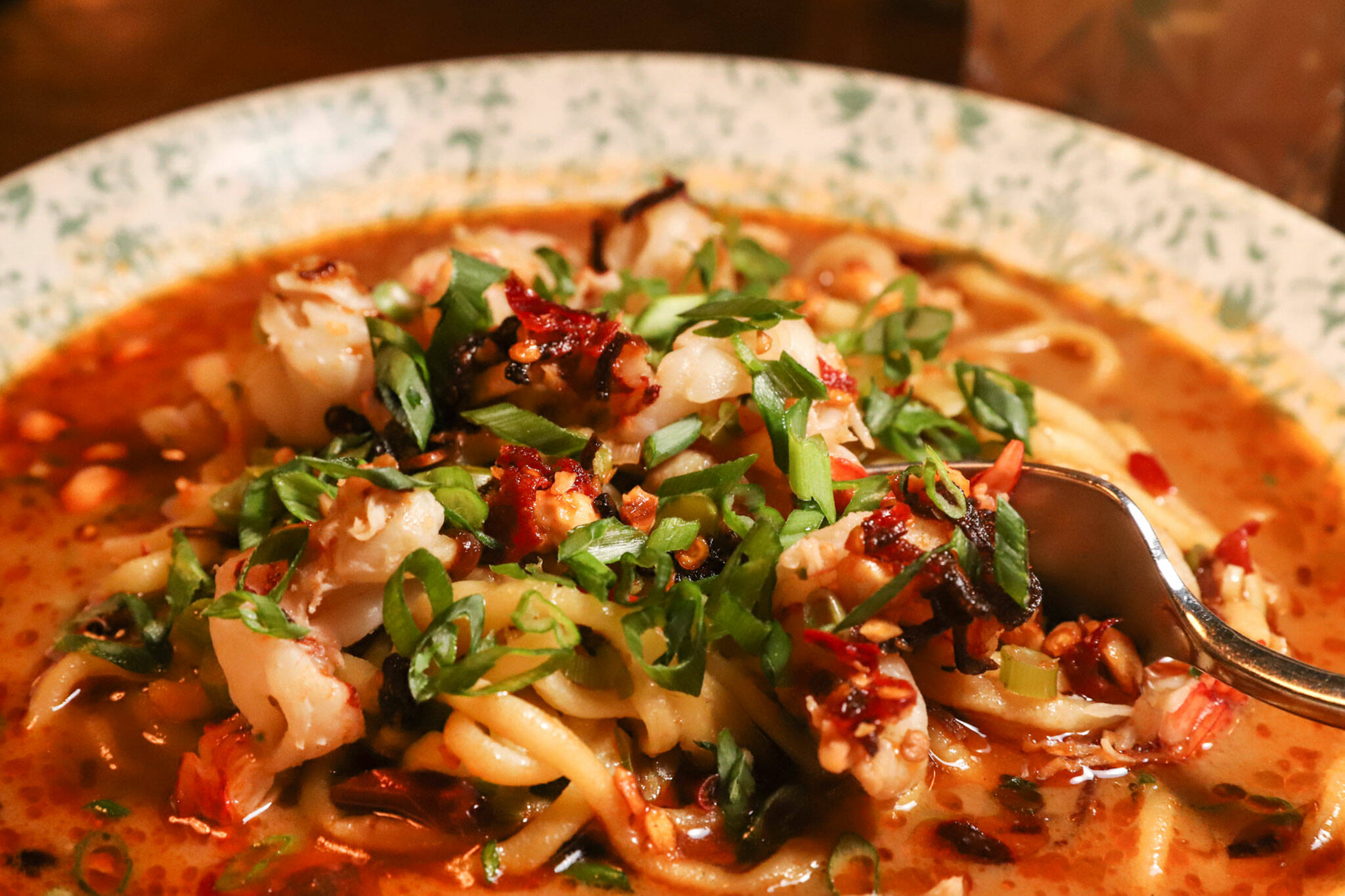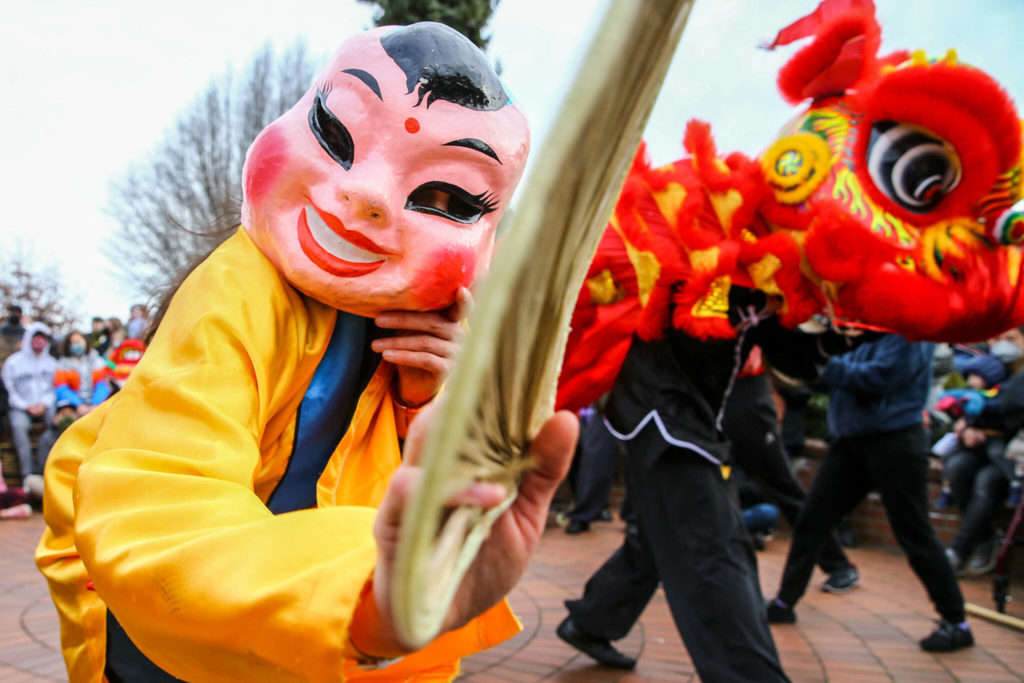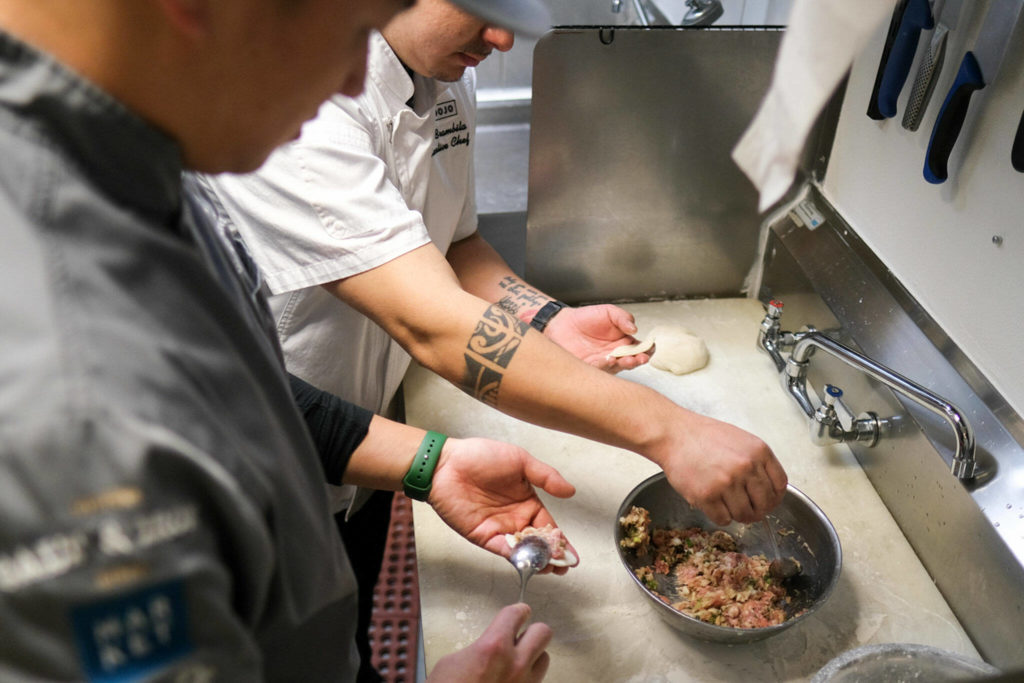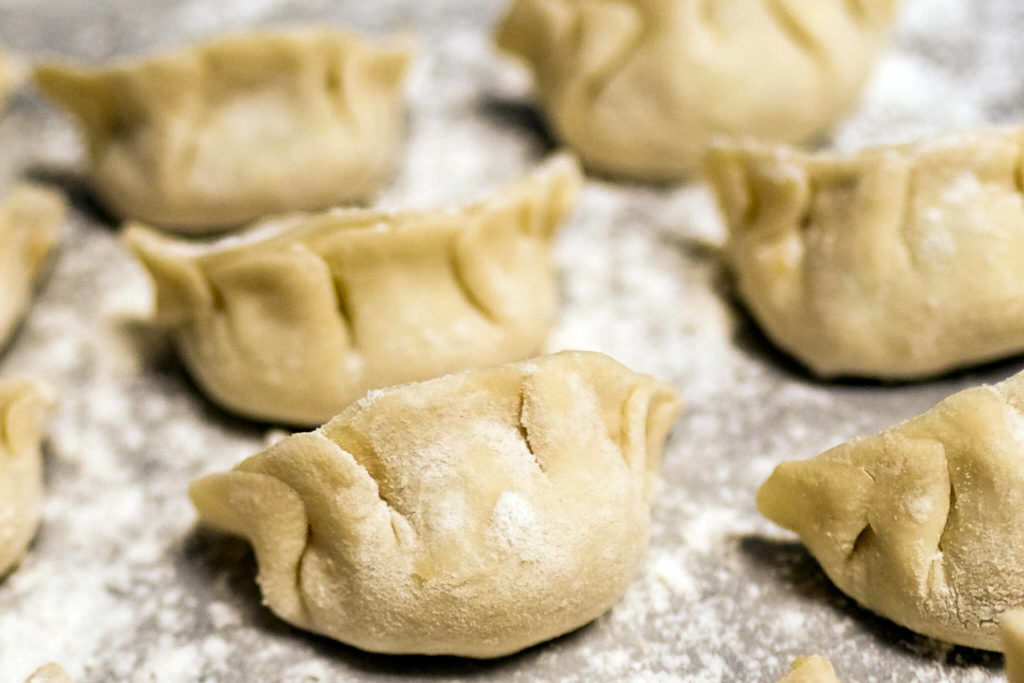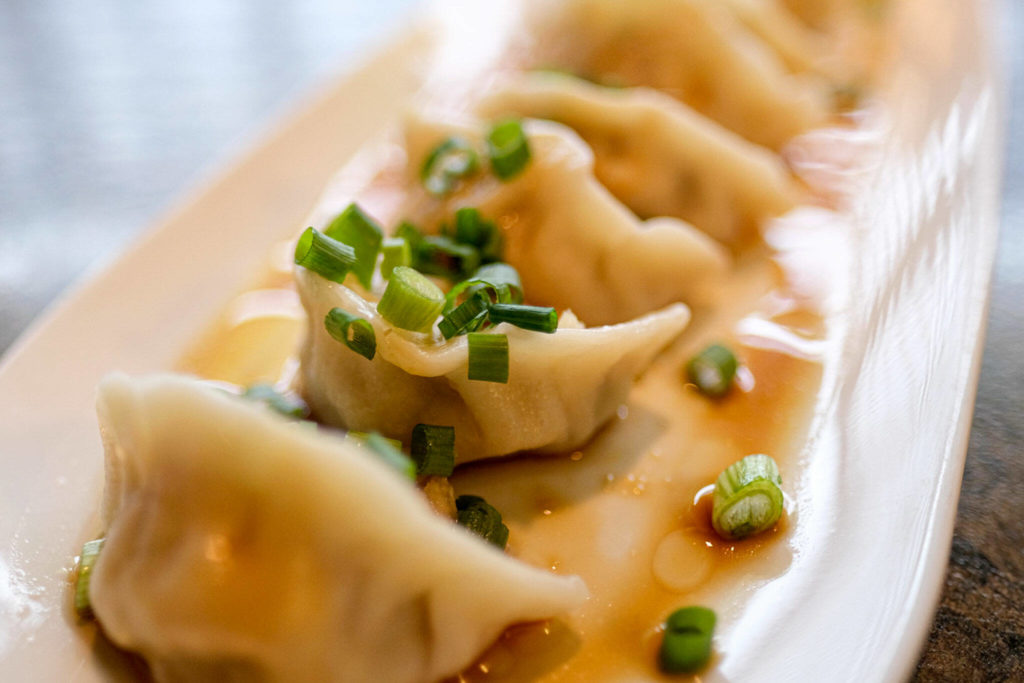EDMONDS — Shubert Ho grew up watching his grandmother make Chinese dumplings with steady hands.
Ho, 39, now the chef-owner of Bar Dojo in Edmonds, can still hear the wooden dowel hitting the table as Shouling Morsellino-Shiu rolled each pale wrapper into a smooth circle. The grandchildren surrounded her in the kitchen, learning by sight. Over the years, they would join in and make their own.
Making dumplings was an all-day family affair on Lunar New Year.
Tuesday marks the start of the Year of the Tiger for countries in East and Southeast Asia. Over the weekend, the city of Edmonds held its first Lunar New Year celebration to recognize its Asian and Asian American residents.
As a child, Morsellino-Shiu fled China with her parents in the throes of the Cultural Revolution, as Mao Zedong tried to reassert control through violent purges.
Morsellino-Shiu worked as an acupuncturist in Taiwan. After immigrating to the United States, she couldn’t get a medical license due to language barriers. She helped raise Ho and her other grandkids so her daughter could work full time. Morsellino-Shiu died almost a decade ago at age 79.
The clean folds and uniform shape of Ho’s dumplings still show his grandmother’s precision.
With each bite, a familiar waft of mouthwatering pork, garlic, onion and ginger spills out.
“It’s just comfort, you know?” Ho said. “Like when you bite into a deep dish lasagna if you’re Italian, and it reminds you of home and your grandma.”
A week before the Lunar New Year, Ho sat in Bar Dojo describing the dish that got his Edmonds restaurant off the ground, his grandmother’s braised beef noodle soup. Soy-based broth, tomatoes, vegetables and the basis of Chinese cooking: onions, garlic and ginger. She would braise the beef for hours, until the meat nearly fell apart and everyone within smelling distance was ravenous.
The soup was on Bar Dojo’s menu for the first seven years. Ho paused, remembering the hard-boiled egg she threw in that would soak up all the soy and beef flavor.
“We might have to bring that back after this interview,” he said, laughing.
‘A richness’
On Saturday morning, hundreds of people gathered in the Edmonds Lutheran Church parking lot to watch a traditional Lunar New Year event, the lion dance. Performers dressed in bright, expressive costumes to bring good fortune and chase away evil spirits.
It was Edmonds’ first ever Lunar New Year celebration, complete with a kung fu demonstration, a winter market highlighting Asian vendors and a story time to learn about the traditions around the holiday. Red lanterns were hung and red envelopes — traditionally filled with money — were handed out, the color symbolizing good fortune and joy.
“We have started to recognize all the other cultures that exist in this community,” said Ho, whose restaurant was a sponsor for the Edmonds event.
Representation is important, said Karin Butler, a Taiwanese American and co-founder of Hunniwater, an Edmonds company that makes hydrating, honey-sweetened drinks and sponsored the celebration.
Butler grew up in Wyoming, in a small town with one Chinese restaurant, Twin Dragon, that was the center of new year celebrations.
“I think it’s so wonderful that we can kind of bring (the holiday) to the larger community here in Edmonds, because it was really isolating,” Butler said of growing up in Wyoming. “There was no lion dance for us to go to.”
On Lunar New Year, Twin Dragon prepared the kind of feast where it was impossible to count the number of dishes coming out of the kitchen.
“I remember from a smaller age, just looking over the table and seeing all the food,” Butler said. “You just can’t run out. It was so plentiful.”
Butler was excited to bring her kids to the Edmonds event. She saw it as a way to show them part of their culture.
“There’s a richness and diversity (in Edmonds),” she said. “I feel like they can be authentically who they are here, which is really what we want.”
‘Like a new day’
Hui Su hasn’t been home to Liaoning in northeast China since the pandemic hit in 2020. She planned to close Dumpling Generation, her Edmonds restaurant of eight years, on Tuesday to celebrate the new year and cook all day. Her eyes brightened as she listed off dishes she’d make for her family’s good fortune: beef, chicken, whole fish, cake and, of course, dumplings.
“The new year comes in, all bad things go away, and everything’s like a new day,” Su said.
Dinner will be a more humble gathering this year: just Su, her daughter and her daughter’s boyfriend. Her husband is in China on business. She used to go every year. Traveling back and forth is too hard now.
Su missed celebrations back home. She missed her family. She missed the death of her father in November. He had a back issue, but other unexpected health problems made him quite ill.
Just before he died, she talked with him over FaceTime.
“For me, (when) I have my mom and my dad, I feel, you know, I have everybody,” she said, tearing up in the dining room. “And now it’s only my mom.”
‘The new culture’
In China, everything in the feast has meaning: whole fish for prosperity, dumplings and spring rolls for wealth, sweet rice balls for togetherness, noodles for happiness and longevity.
Other countries celebrate with their own dishes: Bánh chưng in Vietnam, bricks of sticky rice, mung bean and pork wrapped in dong leaves; a Korean rice cake soup called dduk-guk; and in Singapore, yusheng, a crunchy and tangy raw fish salad meant to be tossed high in the air to achieve prosperity in the coming year.
Ho’s Lunar New Year is different from the one his mom celebrated, and the one his grandmother and great-grandma experienced. He has been to Taiwan twice, never to China. He always grew up celebrating in the United States.
The dumplings, fish and other dishes he now serves at Bar Dojo are often adapted, sometimes fusion. One dumpling uses a meatball filling instead of the traditional pork. Each dish connects back to his his family and ancestors.
Ho wants to keep passing on those traditions to his two young children, who will carry them on in their own way.
His kids have a white mother, and they have begun to question where they fit in.
“I don’t know where I belong,” Ho recalled his 7-year-old daughter saying one day. “Because I don’t belong with all the white people and I don’t belong with all the Asian people.”
It’s a feeling Ho never had to face. He’s still navigating it with them.
“I really need to show my kids more of my culture and create the new culture that they should feel comfortable being in,” he said, “instead of feeling like they don’t belong somewhere.”
And like his grandmother taught him, his kids already know how to shape dumplings.
Taylor Goebel: 425-339-3046; taylor.goebel@heraldnet.com. Twitter: @TaylorGoebel
Talk to us
> Give us your news tips.
> Send us a letter to the editor.
> More Herald contact information.
